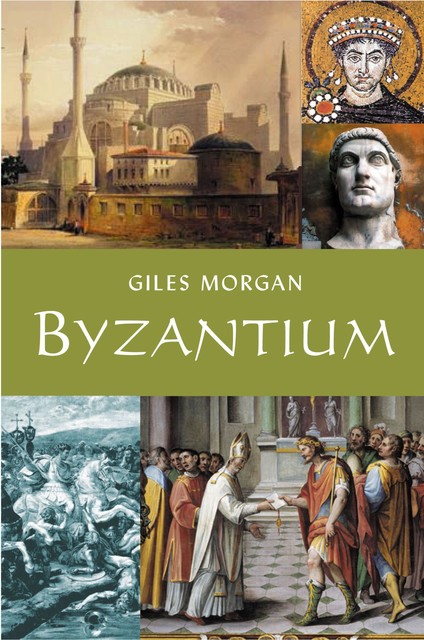We use cookies to improve the Bookmate website experience and our recommendations.
To learn more, please read our Cookie Policy.
To learn more, please read our Cookie Policy.
Accept All Cookies
Cookie Settings

Read in our apps:
iOS
·Android
Giles Morgan
Byzantium
Notify me when the book’s added
Impression
Add to shelf
Already read
Report an error in the book
Share
Facebook
Twitter
Copy link
To read this book, upload an EPUB or FB2 file to Bookmate. How do I upload a book?
- About
- Readers5
- On the bookshelves
So what's so significant about the Byzantine Empire? It is now recognised as having had a considerable influence on the Renaissance and a significant impact in the shaping modern Europe and modern historians are increasingly acknowledging the role the Byzantine Empire played in the development of both Islam and Christianity, and the relationship between the two. The term 'Byzantine' derives from the ancient Greek city of Byzantium founded in 667 BC by colonists from Megara. It was named in honour of their leader Byzas. It later became better known as Constantinople, that gateway between West and East and played a crucial role in the transmission of Christianity to the West. Constantine is now generally known as the first Christian Emperor, and in recent years interest in him has grown, with his role in the development of Christianity being questioned by Dan Brown, author of The Da Vinci Code, amongst others. A closer examination of this formative period in the history of the church reveals a struggle to gain a coherent and cohesive religious identity. Christianity would emerge as the major religion of the Byzantine Empire in a departure from the pagan worship of the Roman Empire. The Byzantine Empire was often at the centre of profound geopolitical, cultural and religious forces that threatened to pull it apart. When Byzantine forces suffered a terrible defeat at the hands of the Seljuk Turks at the Battle of Manzikert for example, appeals to the West precipitated the First Crusade. In 1204 during the Fourth Crusade, Constantinople was conquered by the Crusader army. The dramatic siege and subsequent fall of Constantinople to the Ottoman Empire is often seen as marking the end of the medieval period. The Byzantine Empire lasted for over a thousand years, created remarkable art and architecture and created a lasting cultural and religious legacy — even its decline and fall was to have ramifications that reached far beyond its borders. The fall of Constantinople which had been a key city on the ancient Silk Road, linking East and West led many to consider the prospect of opening up new lines of trade, sea exploration that would eventually lead to major new discoveries, new routes and new worlds…
more
This book is currently unavailable
126 printed pages
- Copyright owner
- Bookwire
- Original publication
- 2011
- Publication year
- 2011
- Publisher
- Pocket Essentials
Have you already read it? How did you like it?
👍👎
On the bookshelves
fb2epub
Drag & drop your files
(not more than 5 at once)

